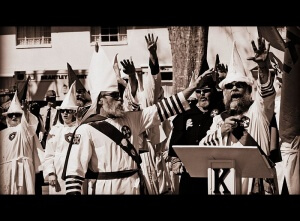United States Votes Against Anti-Nazi United Nations Resolution
December 15th, 2016

While the United States did not vote in favor of the anti-Nazi resolution, they did condemn all forms of hate speech.
The United States is one of three countries in addition to the Ukraine and Palau that voted against a United Nations resolution that requested the condemnation of the glorification of Nazism. The resolution, entitled “Combating Glorification of Nazism, Neo-Nazism and Other Practices That Contribute To Fueling Contemporary Forms of Racism, Racial Discrimination, Xenophobia and Related Intolerance.” This resolution was approved by the United Nation’s Human Rights committee with 131 countries in favor, 3 countries against, and 48 countries abstaining. This recent response by the United States highlights the stance that the United States takes towards hate crimes, of which there have been an increased number of lately in response to the presidential election. Some of the people who have been targeted by hate crimes include LGBTQ individuals and foreign individuals. The United States’ objection to the resolution was based on freedom of speech and expression grounds. The United States, however, did issue a statement condemning all forms of religious and ethnic intolerance or hatred both within the United States and throughout the country. Statistics indicate that over half of all reported hate-crime speech is anti-Jewish in nature.
Key Details About Hate Speech
The First Amendment to the United States Constitution prohibits making any laws respecting an establishment of religion which helps to make sure that there is no prohibition on the free exercise of religion or freedom of speech.
In many cases, Nazism is seen by states as one of the many forms of hate speech. Individuals must understand that hate speech is protected under the First Amendment of the Constitution of the United States. Under the First Amendment’s free speech clause, the federal and state government are forbidden from restricting speech and also prohibited from initiating charges against individuals who merely speak out violently against individuals on the basis of any type of identity. Hate crimes can be committed against an individual on the basis of ancestry or national origin, color, disability, gender, race, religion, or sexual orientation.
There are several types of laws that criminalizes certain types of hate crimes. This area includes laws that add punishment when the crime has been prosecuted as an assault, laws that protect individuals based on membership to a specified group of limited and select classes, and laws that protects against crimes against an institution including institutional vandalism.
Potential Penalties
There are various criminal penalties for certain hate crimes, and those penalties vary between states. Hate crimes are sometimes punishable as felonies, which means charges can result in greater than one year in prison. There is also applicable federal law prohibiting certain types of hate crimes. In addition to criminal sentences, individuals who commit violence, vandalism, or prohibited types of hate crimes against another person can be sued in court and ordered to pay damages to the victim.
The Goal of the Universal Life Church’s Blog
The Universal Life Church’s blog is designed to focus on various legal proceedings throughout the world that concern the establishment and protection of religious freedom. There have been an increased number of legal cases lately which have influenced issues concerning the freedom of speech and expression rights.
(image courtesy of Craig O’Neal)


